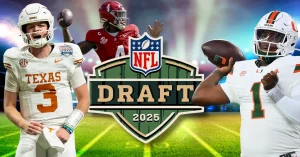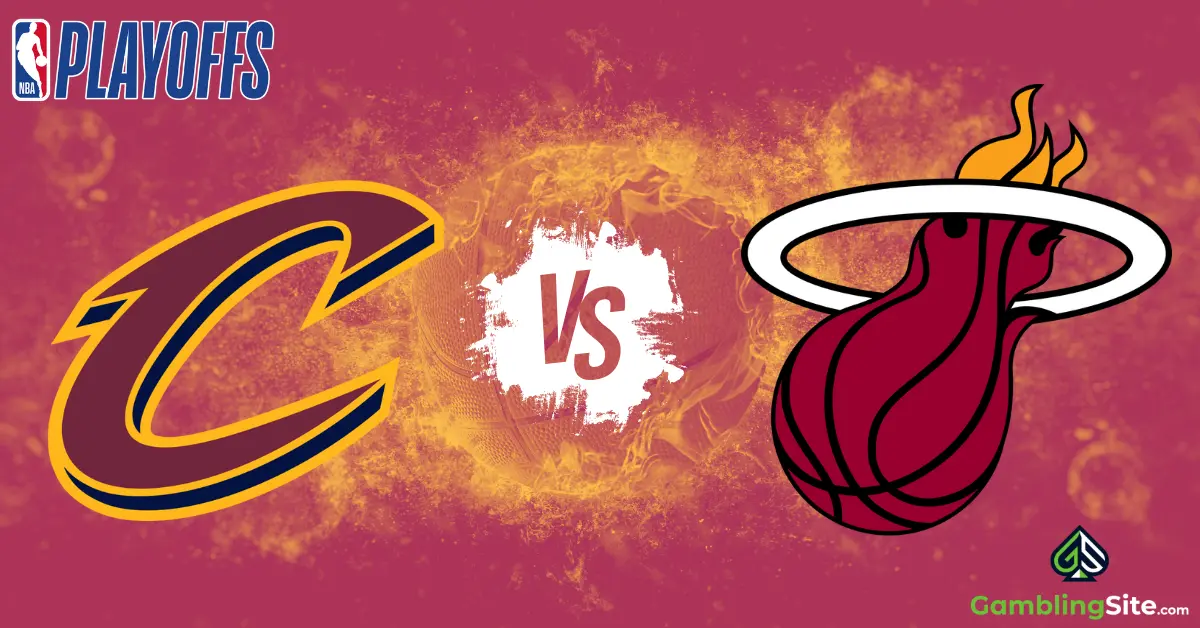Top 10 Mistakes in Sports Betting | Avoid These to Win Big

The world of sports betting, with its point spreads, money lines, totals, same-game parlays, cashouts, and in-game betting, is a fun and exciting hobby and a great source of entertainment for those who indulge.
Yet, for those new to it, grasping the various types of bets and interpreting the numbers (there are SO many numbers) can be super intimidating and overwhelming. Getting the skills in market analysis, handicapping games, and recognizing value comes with experience—and a lot of it.
Think of us as your friendly guides, your experienced sports betting mentors, as we guide you through the top 10 mistakes you’re likely to come up against in sports betting.

Managing Your Bankroll in Betting
First things first: Managing your bankroll, aka your spending) is the most important tip, even for those who bet just for fun. Those who don’t can end up struggling to keep their head above water financially.
Always set personal bankroll rules that are straightforward and easy to stick to! Do this as you would for your monthly household budget—allocating a specific portion of your funds for betting. As a matter of fact, it’s a good move to keep your betting money in a separate bank account from your regular funds to avoid any crossover.
Your beginning bankroll can, and probably should be modest—that’s a great way to start! As you accumulate wins and regularly add a portion of your earnings to them, your bankroll will grow. You might begin with an initial fund of $100.
Then, decide on the size of your bets as a proportion of your total funds. There are three tiers of risk to consider:

- Low risk (0% to 2%): Ideal for beginners, this is the most cautious approach. You bet between 0% and 2% of your total funds on each bet. With a $100 fund, your maximum bet is $2. You might have several bets, but none should exceed this $2 limit.
- Moderate risk (0% to 4%): Suitable for those beyond the beginner stage but still cautious, betting between 0% and 4% of your funds. With a $100 fund, you can bet up to $4 per bet. If you have 10 bets of $4 each, your total at risk is $40.
- High risk (0% to 5%): This is for the more experienced bettors who seek greater excitement. Your maximum bet can be up to 5% of your funds or $5 with a $100 fund. Having 20 bets at once means your entire fund is at stake.
Never exceed 5% of your funds on a single bet. Sticking to these smaller bet sizes offers a buffer against fluctuations, preventing a quick financial descent.
Also, keep a meticulous record of all bets in a spreadsheet. Since your betting money is separate, this record is a clear indicator of your betting performance—good or bad. Track the following:

- Date of the bet
- Type of bet
- Bet amount
- Outcome
- Amount won or lost

Having Unrealistic Expectations
Getting into sports betting with an attitude like “Ima win big and a lot” is unrealistic—it’s actually delusional. In reality, losses are much more common than wins. Succeeding in sports betting is challenging; it calls for extensive research and a decent share of luck.
Occasional wins are possible, sure, but consistently profiting from sports betting is a gradual process. The idea of doubling your investment on each bet is a fairy tale. Even the most proficient sports betting experts only get a success rate of around 60%. A super knowledgeable bettor can consider every possible factor, but there are gonna be times when the chosen team underperforms.
We strongly recommend you view sports betting more as a recreational hobby rather than a reliable source of significant income.

Not Studying Your Sports Homework
While sports betting should be approached as a pastime rather than a serious occupation, it’s important not to place bets without proper knowledge. To do so is essentially squandering your money.
Research goes beyond just viewing projections on sports programs. It’s crucial to stay updated on injury news of your preferred players or teams and to review historical data on how teams have performed against each other. Even factors like weather conditions, such as wind or heat, can impact the game and should be considered.
Focusing on a specific area can simplify your research efforts. For instance, if college football is your passion, concentrate on betting in the ACC. Study these teams in detail and assess your success. Once you’re comfortable with this, you might consider expanding your focus to other conferences or sports.

Betting on Unfamiliar Sports
It’s always a bad bet to bet on sports you’re unfamiliar with, so don’t feel pressured to bet on football just because everyone else is betting on football! Especially if you don’t really understand the game or don’t have much interest in it.
Your chances of winning go much lower if you bet on sports you don’t know well—understanding the game and how different teams perform is a big part of making smart and successful bets.
Do not bet on a random sport just because everyone else is doing it—this can and will lead to losses. Stick to sports you know well when placing your wagers.

Avoid Excessive Betting
It’s important to tamp down the urge to place too many bets, even if you’re focusing on sports you know really well. Some people bet on too many events, hoping to win something, rather than being selective and looking for the best chance of success.
Sports betting should be seen as a long-term activity, not a quick fix. It’s better to bet at a pace that doesn’t deplete your funds too fast. Remember, each bet you make includes a ‘vig’ or a fee for the bookmaker, often around 10%. This fee adds up and can be tough to beat if you’re betting on too many things at once.
Instead, take your time, do thorough research, and place bets on outcomes you believe have a decent chance of turning out in your favor.

Placing Bets With Your Heart Instead of Your Head
Many bettors struggle with emotional decisions in sports betting, like always picking their favorite local team or impulsively betting under the influence of alcohol. You shouldn’t let your emotions get the better of you when betting—it’s easy to do, but listen to your brain! Sports betting calls for research-backed decision-making, and you need to bench your heart.
Choosing bets based on gut feelings rather than well-researched info also leads to losses, particularly over the long term. While loyalty to a favorite team is admirable, it’s important to set aside personal biases and stay objective in your betting decisions. If you find it difficult to be impartial about your favorite team, it’s better to leave them out of the equation so you can keep a clear head.
Betting while drinking is another rookie mistake—alcohol lowers inhibitions and can be a catalyst for rash decisions, so don’t imbibe and bet. Even if betting on a certain team seems like a good idea at the moment, it’s usually not the best decision.

Misinterpreting Value in Betting
A good amount of bettors tend to place bets on outcomes they believe are most likely to happen. While this approach appears to be a good one, successful betting actually requires a more knowledgeable understanding of what exactly value is.
Value in betting is not just about the odds; it’s about how those odds compare to the actual chances of your bet winning. A smart betting strategy involves placing bets only when the likelihood of an outcome is greater than what the odds suggest.
To understand the value, you can calculate the implied probability of a bet using the odds provided by the bookmaker. This can be done regardless of whether the odds are in fractional, decimal, or moneyline format, converting them into a percentage to represent implied probability.
Value is classified as either positive or negative. Positive value exists when the likelihood of a bet winning exceeds the implied probability indicated by the odds. Conversely, a bet has a negative value if its chances of winning are lower than what the odds imply. The key to profitable betting is identifying and betting on wagers with positive value.
Let’s say the Michigan Wolverines are set to face the Florida Gators in a football matchup. You look at their standings and find that Michigan is leading the Big Ten with a 6-1 record, while Florida ranks second in the SEC-East with a 5-2 record. The teams seem closely matched, though Michigan has a slight edge. After thorough research, you estimate Michigan’s chances of winning at 60% and Florida’s at 40%.
Checking your preferred betting site, the odds are listed as:

- Michigan: 1.80
- Florida: 2.25
- Michigan: (1 / 1.80) x 100 = 55.6%
- Florida: (1 / 2.25) x 100 = 44.4%
Comparing our estimated probabilities with the bookmaker’s implied probabilities:
| Team | Probability | Implied Probability |
| Michigan | 60% | 55.6% |
| Florida | 45% | 44.4% |
In this case, betting on Michigan doesn’t offer a positive value because our actual probability (60%) is higher than the bookmaker’s implied probability (55.6%). Similarly, there’s no positive value in betting on Florida since our estimated chance of them winning (40%) is less than the implied probability (44.4%).
Given that this game presents negative value for both teams, it’s advisable to keep your money and search for a game with more favorable betting prospects.

Comparing Odds and Lines Across Sites
After identifying a wager with a potential positive value, the next step is to explore various betting sites. It’s important to compare the odds and lines they offer to find where the most advantageous deals and potential payouts are. This process is quick and can be extremely beneficial.
Consider these example odds from five different betting sites for the victory of a soccer team in an upcoming game:

- Betting Site 1: 1.83
- Betting Site 2: 1.75
- Betting Site 3: 1.82
- Betting Site 4: 1.70
- Betting Site 5: 1.80
While these odds are similar, a closer look reveals where the better returns are. Betting $100 on the highest odds of 1.83 could yield $83 in winnings, whereas the same bet at the lowest odds of 1.70 would bring in $70. This demonstrates a notable difference in potential earnings.
Remember, not all betting apps will show such obvious differences in their odds, but even minor variances can accumulate significantly over time.

Betting Only on Bookmaker’s Favorites
This refers to always choosing the favorites as indicated by the bookmaker, not your personal favorite team. While bookmakers assign favorable odds to certain teams for valid reasons, it doesn’t guarantee their victory. Every team can have an off day, and relying solely on favorites for your bets can lead to losses.
Here, thorough research is again essential. Look at the history between the two teams, particularly their most recent encounters. Keep an eye on player conditions, especially if there are any significant injuries that could affect performance. Sometimes, this diligent research might reveal overlooked factors, offering you the chance to earn substantial returns by betting on the underdog.

Focusing Only on Big Payouts
Conversely, some bettors consistently favor longshots due to the appeal of higher potential payouts. While considering underdog bets is a sound strategy, it shouldn’t be based solely on the possibility of a big win. High odds often correlate with a lower probability of winning, so this approach can lead to significant losses.
It’s not just underdog bets that tempt with large payouts; parlays are also known for this. Many betting experts advise against parlays because they are extremely challenging to win. The lure of huge returns often attracts bettors, but in reality, sportsbooks benefit from parlays due to their high difficulty and typically higher vig compared to straight bets.
Though they might seem less exciting, straight bets offer a more realistic chance of winning. Simpler betting strategies like these often prove more successful in the long run.
Takeaways
To avoid these top 10 rookie mistakes in sports betting, it’s all about taking it slow and doing your homework. Jumping into bets without thinking it through can lead to trouble, whether it’s deciding how much to bet or which team to back. Good research is your BFF here—it’s what all your betting decisions should be built on. Don’t ever feel like you’re cutting corners when it comes to learning all you can.
But remember, this is supposed to be fun! Sports betting isn’t meant to feel like a second job. If you start to feel bogged down by all the analysis and it’s sucking the joy out of the game, it might be time to hit the brakes. Take a step back and watch the games just because you love the game. When you feel more relaxed and ready, you can come back to sports betting with a fresher, less stressed mindset.

Alyssa contributes sportsbook/online casino reviews, but she also stays on top of any industry news, precisely that of the sports betting market. She’s been an avid sports bettor for many years and has experienced success in growing her bankroll by striking when the iron was hot. In particular, she loves betting on football and basketball at the professional and college levels.








